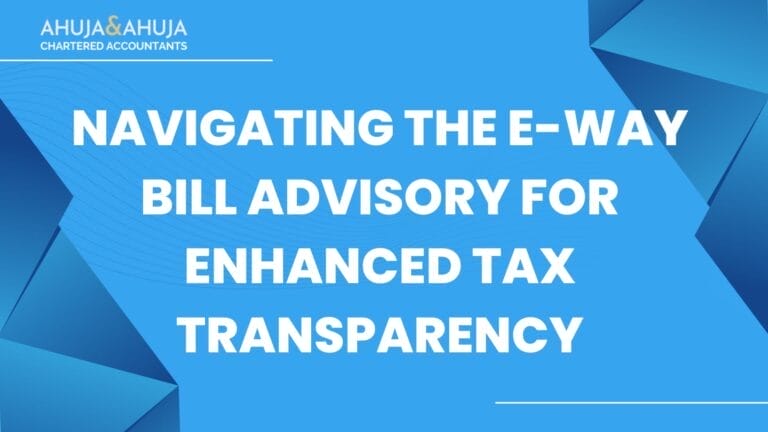Consequences of Late or Non Filing of GSTR-3B
The Goods and Services Tax (GST) introduced in India in 2017 transformed the indirect taxation landscape, simplifying tax structures and increasing compliance.
Among the various returns under GST, GSTR-3B holds significant importance for regular taxpayers. This simplified return is a monthly summary that taxpayers must file to declare their tax liabilities and input tax credits accurately. To understand more about various GST services, click here.
What is GSTR-3B?
GSTR-3B is not just a form but a self-declaration of summary GST liabilities for a given tax period. Entrepreneurs and businesses registered under GST should file this return, including details of sales and purchases, the GST collected on sales, and the GST paid on purchases.
By filing this return, a taxpayer completes his or her obligation for tax payment toward the government within the prescribed timelines.
Who Needs to File GSTR-3B and When?
Every entity registered under GST must file GSTR-3B, including traders, manufacturers, and service providers—irrespective of whether there were any transactions during the month or not. Typically, the due date for filling GSTR-3B is the 20th of the following month.
For example, for transactions in October, the GSTR-3B should be filed by the 20th of November.
However, taxpayers can benefit greatly from following a detailed GST checklist and action points to ensure all their GST obligations are met on time.
Why is Timely Filing Crucial?
Timely filing of GSTR-3B is crucial for several reasons:
- Avoidance of Penalties: Late submission leads to fines and interest charges, which we will discuss in upcoming sections.
- Input Tax Credit (ITC) Claim: To claim input tax credit, filing GSTR-3B is essential. Delayed filings can disrupt the flow of ITC, affecting business cash flows negatively.
- Compliance Rating: Regular and timely filing affects the GST compliance rating positively. A good compliance rating enhances the credibility of a business, making it advantageous when tendering for contracts or business expansions.
Businesses looking to integrate electronic invoicing with their operations should consider its impending linkage with e-invoice integration in E-Waybill generation, a move that highlights the increasing shift toward digital compliance mechanisms in India’s GST framework.
Understanding the basics of GSTR-3B is the first step towards efficient GST compliance. Every eligible business must prioritize its timely filing to harness the benefits of the GST system, including smooth credit flow and minimized compliance issues.
For personalized help or more detailed guidance, reaching out to seasoned Chartered Accountants in Noida can provide tailored solutions that cater to specific business needs.
Consequences of Late Filing of GSTR-3B
Once the importance and basics of GSTR-3B are understood, it is crucial to recognize the direct consequences of not adhering to the deadlines set by the GST framework.
Late filing can attract several penalties and operational hurdles that can affect the smooth functioning of your business. Here, we outline these consequences in detail to ensure maximum clarity and awareness.
1. Late Fees Under Section 47 of the CGST Act, 2017
One of the immediate repercussions of filing GSTR-3B late is the imposition of late fees. These fees start accruing immediately after the due date and continue to accumulate until the return is filed. The current fee structure is rigorous:
- Rs. 50 per day for CGST and Rs. 50 per day for SGST, leading to a total of Rs. 100 per day of delay.
To better understand, here’s a breakdown:
| Turnover | Maximum Late Fees |
|---|---|
| Up to Rs. 1.5 crore | Rs. 2000 (Rs. 1000 for CGST + SGST) |
| Rs. 1.5 crore to Rs. 5 crore | Rs. 5000 (Rs. 2500 for CGST + SGST) |
| More than Rs. 5 crore | Rs. 10000 (Rs. 5000 for CGST + SGST) |
It’s clear that the cost of delay can quickly add up, impacting your business financially.
2. Interest on Delayed Payment – Section 50
Apart from late fees, interest is charged on the tax amount that remains unpaid. This charge is independent of the late fees and is levied at a rate of 18% per annum.
Interest is calculated from the day after the due date till the date of payment, and it applies even if you partially delay the payment.
For those using the cash ledger balance to offset their dues, this interest can significantly increase the total amount payable, adding further strain on financial resources.
3. Operational Disruptions: E-Waybill Restrictions
Failing to file two consecutive GSTR-3B returns can lead to an operational bottleneck—restriction on the generation of E-Way Bills. This has broader implications for the logistics and supply chain aspects of your business:
- Outward movements of goods worth more than Rs. 50,000 across state lines, and certain intrastate movements as defined by state laws, would be impossible without the active E-Way Bill.
This restriction remains until the GST returns are filed, making compliance a critical component of maintaining uninterrupted business operations.
Late filing of GSTR-3B not only incurs financial penalties but also disrupts business operations significantly.
As we further explore the more severe consequences in the upcoming sections, it is evident that maintaining timely compliance is not just beneficial but essential for the health and continuity of your business.
For businesses needing assistance with filing or managing the complexities of GST, consulting GST refund services can be invaluable.
4. Penalty Under Section 122(1)(iii)
If the non-compliance extends past the initial period, the liabilities amplify. Under Section 122(1)(iii) of the CGST Act, if taxes collected are not submitted within three months from the due date, a penalty is imposed.
This penalty is equal to 10% of the tax amount due but not less than Rs. 10,000. This can be a substantial financial hit for businesses, especially those already struggling with cash flow issues.
5. Cancellation and Suspension of GST Registration
Further delay leads to even more drastic measures. For those who fail to file their GSTR-3B for a continuous period of six months, there’s a risk of GST registration cancellation.
Initially, a notice is sent seeking an explanation, and the business owner has 7 working days to respond. If unsatisfactory, the cancellation proceedings will proceed, during which time the GSTIN is suspended, halting all taxable operations.
This suspension severely affects business operations, as you won’t be able to either collect GST from customers or claim any Input Tax Credit (ITC). The business essentially comes to a standstill in terms of its revenue-generating activities.
6. Recovery Proceedings Under Section 79
Perhaps the most severe of all, recovery proceedings under Section 79 involve direct action from the authorities to recover due taxes.
Following a series of reminders and a formal order, if the GSTR-3B remains unfiled, the tax authorities are empowered to take extreme steps to recover the taxes due:
- Garnishing Bank Accounts: Direct recovery from the business’s bank accounts.
- Adjustment against future refunds: Any refunds due can be adjusted against the tax liabilities.
- Recovery from other assets: In certain extreme cases, authorities could seize assets to recover the due taxes.
Each of these actions can significantly disrupt the business’s ability to function normally and could potentially push it towards insolvency if not managed well.
The cascading effect of not filing GSTR-3B can lead not only to financial penalties but also severe operational disruptions that could threaten the very existence of the business.
It is clear that the implications of non-compliance extend far beyond simple late fees and should be taken very seriously.
To help manage these complexities, it is advisable to seek expert assistance, possibly from Chartered Accountants in Noida.
Preventive Measures and Best Practices for GSTR-3B Compliance
Having detailed the repercussions of not complying with GSTR-3B filing requirements, this final part focuses on proactive measures and best practices that can safeguard businesses against potential penalties and disruptions.
Adherence to these strategies ensures timely compliance and a smooth operational flow, conserving the integrity and liquidity of your business.
1. Establishing a Compliance Calendar
One of the fundamental steps in ensuring timely filings is to develop a compliance calendar that includes all due dates for GST filings, tax payments, and other regulatory deadlines.
This calendar should be checked regularly, and reminders should be set for all critical deadlines. Utilizing technology to automate reminders can significantly reduce the chances of missing important dates.
2. Leveraging Technology
Investing in reliable GST software can streamline the process of preparing and filing returns. These tools often come with features like error checks, data compilation from various sales and purchase registers, and direct submission capabilities.
Furthermore, integration with e-invoice services helps ensure that data flows seamlessly, reducing manual errors and the labor involved in preparing returns.
3. Regular Reconciliation of Input Tax Credit
To ensure that the Input Tax Credit is correctly claimed and substantiated, businesses must regularly reconcile their purchase ledgers with their GST returns.
This reconciliation should happen before each GSTR-3B filing to catch discrepancies early and address them before they lead to non-compliance or the need for amendments in filed returns.
4. Engaging with GST Consultants
Sometimes, the best way to ensure compliance is to seek expert advice. Working with GST consultants can help businesses stay updated with the latest changes in tax laws, understand complex scenarios, and get professional help in preparation and filing of returns.
This is particularly beneficial for organizations that may not have in-house expertise in tax matters.
5. Training and Awareness for Staff
Training staff members who handle the accounting and taxation aspects of the business is another critical step.
Regular training sessions on GST compliance, the latest tax updates, and the use of accounting software can empower employees and reduce the risk of errors that might lead to non-compliance.
Final Words: Consequences of Non / Late Filing of GSTR-3B
Preventing the complications of non-filing or late filing of GSTR-3B is fundamentally about preparedness and proactive management.
By adopting robust planning, leveraging technology, and seeking expert guidance, businesses can overcome the challenges posed by GST compliance.
Maintaining sound tax practices is essential not just for avoiding penalties but also for ensuring the business’s credibility and long-term success.
Disclaimer
The materials provided herein are solely for educational and informational purposes. No attorney/professional-client relationship is created when you access or use the site or the materials. The information presented on this site does not constitute legal or professional advice and should not be relied upon for such purposes or used as a substitute for professional or legal advice.







